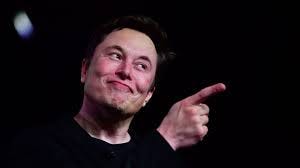What follows is a short note (somewhat revised) that I sent to my Corporate Financial Policy students this morning. I thought some of you might find it interesting as well.
Stock splits are one of those topics that make us question the validity of accepted financial theory. When a company splits its shares, say 10-for-1, there should in theory be no impact on the value of the shares held by an investor. The number of shares goes up by 10x, but the price per share should fall by 90%. If I used to own 100 shares at a price of $10 per share before the split, I will now own 1,000 shares at a price of $1 per share after the split. The market value of my shares is $1,000 both before and after the split. No financial engineering magic here.
This makes perfect sense, in theory at least. But in practice the share price often goes up following the announcement of an impending stock split, albeit sometimes only for a short period of time. In the case of Tesla, the shares are up 6% in pre-market trading today on the back of the stock split news. You can read about the Tesla move here: https://www.wsj.com/articles/tesla-to-request-shareholder-approval-for-stock-split-11648464264?mod=hp_lead_pos2
Note that 6% is not a "small" move in any company's stock price, and in the case of Tesla it represents a market value increase of around $60 billion. How can this be?
It could be that something else is going on here, and that investors see some other more fundamental positive developments lurking behind Tesla’s surprising stock split announcement (no details available at this time). Or maybe they think that at the lower share price--TSLA shares now trade at $1,000 each--more small retail investors will be able to afford the stock, driving up the share price further. Either of these explanations is logically sensible, but can this really explain a market cap move of SIXYTY BILLION DOLLARS? From a stock split announcement?!
Even if we accept that the public (and the stock market) sometimes overreacts to nothing-burger corporate news, what would induce a company to split its shares for the sake of an irrational and typically short-lived bump in stock price? With Tesla of course, we always have to consider the Elon Musk factor. Who knows why he does some of the things he does?
But many other more traditional companies have also split their shares, including most recently Google and Amazon, as has Tesla previously. Even Warren Buffett has created as second class of lower priced BRK shares for small investors—not exactly a stock split but something quite similar in effect. And Mr. Buffett is hardly an Elon Musk when it comes to matters of corporate governance.
So there must be some fundamental logic behind stock splits, even if we accept that any share price impact will generally be small and short-lived. And the answer may be as simple as “We want to make our shares more accessible to small investors and employees”. This is what Tesla said when it last split its shares(5-for-1) two years ago. And this is essentially what Warren Buffett said back in 1996 when he created the new (lower priced) Class B shares, noting that by doing so he was also cutting Wall Street out of the middle and saving his shareholders some money. (Banks had been buying BRK shares and selling fractional interests to smaller investors, for a fee of course.)
I really don't know what is behind the latest Tesla stock split announcement, but I love it when the stock market forces us to rethink some of what we thought we understood about basic corporate finance theory.
Links
Tesla to Split its Shares, WSJ 3.28.2022
Berkshire Hathaway’s Two Share Classes, Investopedia


